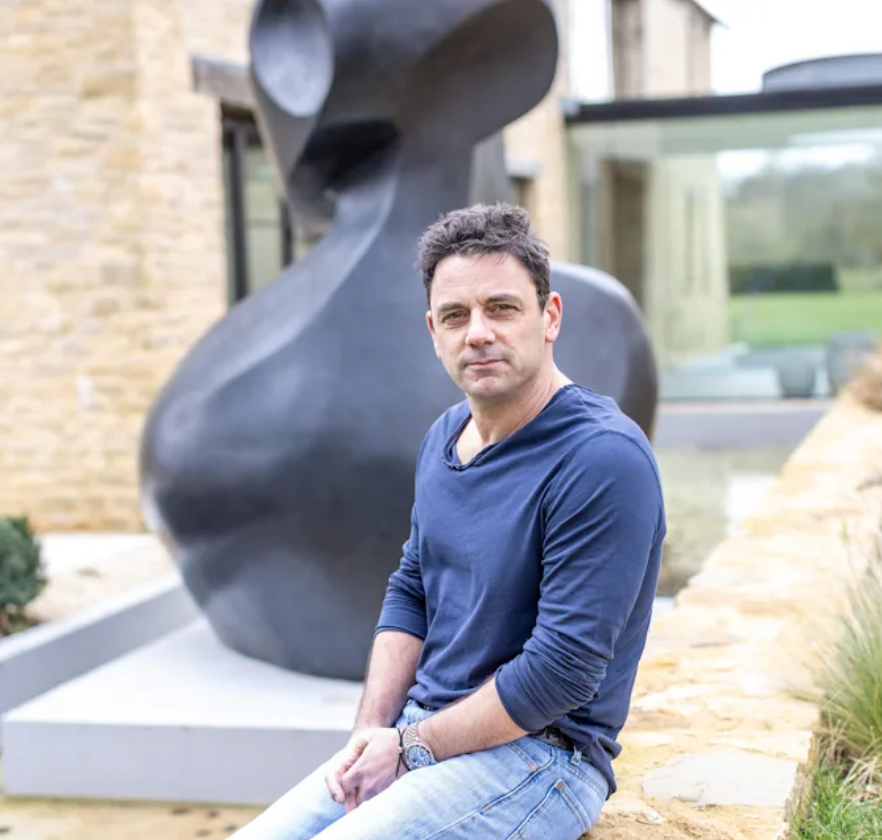“I’ve built three multi-million pound businesses: ADHD is my superpower”
Damian Cox: “digital screens let you run targeted, dynamic campaigns”
Damian Cox spotted a gap in the market. It was 2010; he had been working in outdoor advertising since 1999. His first job was for a startup focused on scaffold banner ads, then he’d built and sold two outdoor ad firms.
“I’d seen the industry from every angle, but noticed landowners weren’t fully tapping the potential of their properties for advertising,” the 50-year-old explains. “I thought, why not help them monetise that space?”
That was the start of Wildstone: it began as a consultancy to design and deliver new advertising sites. Now it’s one of the world’s largest outdoor media infrastructure firms, with turnover above £60 million and 125 staff in seven countries.
“I wanted to bring creativity and precision to places people couldn’t ignore,” Cox said. “The early days were intense but exciting. My team and I were like detectives, scouting prime locations for billboards, navigating planning permissions, and managing construction. We worked with big names like Royal Mail, Transport for London, Tesco, and London borough councils, aiming to create iconic, high-quality advertising spaces. I was obsessive about getting it right, from the design to the execution. Every site had to feel like a landmark.”
Wildstone didn’t get involved with the actual ads, only the ad infrastructure, building screens in spots like the M4’s Golden Mile. By 2015, Cox decided it was time to own the assets. “Why just consult when we could build a portfolio of billboards? So, we started acquiring leasehold and freehold sites across the UK, and lease it back to media operators so they can focus on selling ads. We now often build 50 or more a month.”
Screen installations have learnt lessons from past mistakes: an installation on Hammersmith Towers in 2009 saw the builder “inadvertently strike a sewage overflow,” Cox recalls. “It coincided with a very large storm in London – getting a call from the utilities manager of Universal Music to say his basement was 8ft deep with black water, was certainly a story not to repeat!”
Then came the digital push: “Traditional billboards are great, but digital screens let you run targeted, dynamic campaigns and cut down on paper waste. So I pushed hard to convert Wildstone’s sites to digital.” The firm hit 5,000 billboards by 2022, spanning the UK, Ireland, the Netherlands, and Spain. Cox sold the firm to US firm Digital Bridge in 2020, just before Covid hit, and then to France’s Antin Infrastructure in 2022, a deal which bought in £1 billion investment to scale up.
Cox believes his ADHD helped inspire Wildstone’s growth. “Although outwardly I come across as very disorganised, in my head, everything’s got its own little tray. I can dive into one tray, dissect it, strategise, and close it up. Then I’m on to the next. It’s like having a mental filing cabinet that lets me juggle a million things at once. I can hyperfocus on a problem when it’s crunch time, then pivot to something else without missing a beat.
“People think I’m a massive risk-taker because I’m juggling so many projects. But I’m the opposite – I don’t take risks. I calculate everything. Every move is thought out, even if it seems impulsive from the outside. ADHD lets me see connections others miss, come up with creative solutions, and keep pushing forward no matter what. It’s a big part of why I’ve gotten this far.”
Read more about Wildstone via their website and read more of our scaleup stories here.

Founder of Wildstone - Damian Cox
